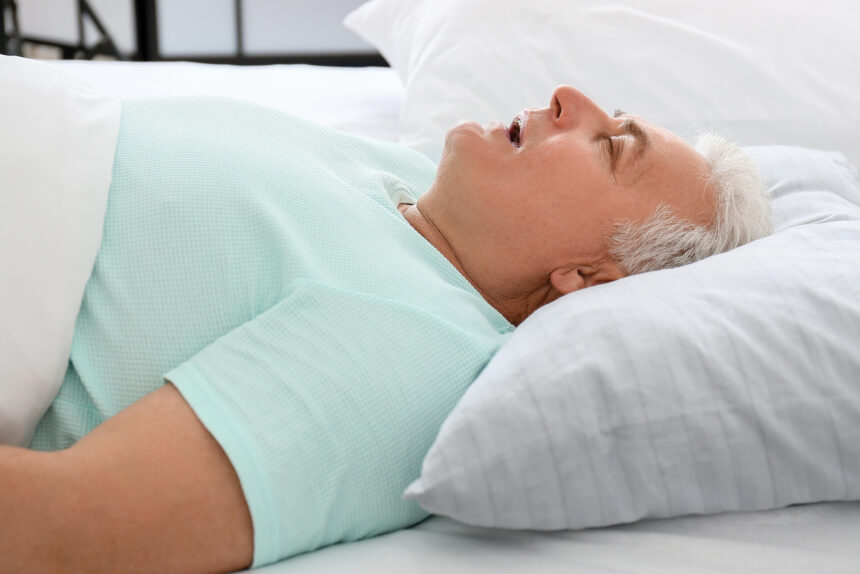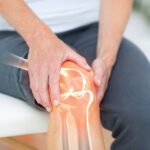When the night turns into a symphony of snores, it’s often taken lightly, sometimes even joked about. However, what many don’t realize is that regular, loud snoring can be a symptom of a potentially serious health condition known as sleep apnea. This common but frequently undiagnosed condition involves repeated interruptions in breathing during sleep and goes way beyond just being a source of nocturnal noise. The real concern arises from the possible health implications of untreated sleep apnea, which extend far beyond poor sleep quality and daytime fatigue. One of the most significant and alarming of these is the potential link to heart disease.
In this comprehensive look into the world of sleep apnea, we aim to shed light on how this common sleep disorder can be a contributing factor to developing heart-related health issues. The connection between disrupted sleep patterns and cardiovascular health is more critical than most people realize. Alongside heart disease, we will explore other health problems that sleep apnea can contribute to, delve into its symptoms, and discuss how it is diagnosed and treated. If you or someone you know snores regularly, understanding the potential risks associated with sleep apnea could be a crucial step towards safeguarding long-term health and well-being.
The Link Between Sleep Apnea and Heart Disease
One of the most alarming health implications of sleep apnea is its potential to lead to heart disease. When you have sleep apnea, your body experiences frequent oxygen deprivation due to interrupted breathing. This puts enormous stress on your cardiovascular system, as it has to work harder to deliver oxygen to your organs. Over time, this chronic strain can lead to various heart-related problems, including:
High Blood Pressure: The sudden drops in blood oxygen levels that occur during sleep apnea episodes increase blood pressure and strain the cardiovascular system.
Heart Arrhythmias (Irregular Heartbeats): The stress and strain of sleep apnea can lead to irregular heartbeats, which, in severe cases, may lead to sudden death.
Heart Failure: Sleep apnea increases the risk of heart failure, where the heart is unable to pump enough blood to meet the body’s needs.
Other Health Problems Caused by Sleep Apnea
Apart from heart disease, sleep apnea can lead to several other health issues, including:
- Type 2 Diabetes: Sleep apnea is common in people with type 2 diabetes, as the interrupted sleep patterns and oxygen deprivation can affect insulin sensitivity.
- Liver Problems: Nonalcoholic fatty liver disease and abnormal liver function tests are more likely in those with sleep apnea.
- Metabolic Syndrome: This cluster of conditions, including high blood pressure, abnormal cholesterol levels, high blood sugar, and increased waist circumference, is often associated with sleep apnea.
- Complications with Medications and Surgery: Sleep apnea can cause complications with certain medications and general anesthesia.
Symptoms of Sleep Apnea: Common signs include loud snoring, episodes of stopped breathing during sleep (often noticed by another person), gasping for air during sleep, awakening with a dry mouth, morning headache, difficulty staying asleep (insomnia), and excessive daytime sleepiness (hypersomnia).
Demographics of People More Likely to Have Sleep Apnea
Sleep apnea is a condition that can affect people of all ages and demographics, but certain groups are more susceptible to developing it. Understanding these demographics can help in identifying and diagnosing sleep apnea early, thereby mitigating its potential health risks.
Age: Sleep apnea can occur at any age, including in children, but it is more commonly diagnosed in middle-aged and older adults. The risk increases significantly for people over the age of 40.
Gender: Statistically, men are more likely than women to suffer from sleep apnea. However, the risk for women increases after menopause, and it is often underdiagnosed in women, partly because their symptoms can be different from those of men.
Weight: Individuals who are overweight or obese are at a higher risk for obstructive sleep apnea. Excess weight, especially around the neck, can obstruct the airway and exacerbate breathing difficulties during sleep.
Family History: Genetics play a role in sleep apnea. A family history of the condition increases an individual’s likelihood of developing it.
Physical Attributes: Certain physical attributes can predispose individuals to sleep apnea. These include a narrow airway, a thick neck, and certain craniofacial configurations that can impact breathing.
Ethnicity: Research suggests that certain ethnic groups may be more prone to sleep apnea. African Americans, Hispanics, and Pacific Islanders have been found to have a higher prevalence of the condition compared to others.
Medical Conditions: People with certain medical conditions such as hypertension, diabetes, and polycystic ovary syndrome (PCOS) have a higher incidence of sleep apnea. Additionally, conditions like enlarged tonsils or adenoids can increase risk, especially in children.
Lifestyle Factors: Smoking, alcohol consumption, and use of sedatives can increase the risk of developing sleep apnea. These factors can relax the muscles in the throat and interfere with the airway during sleep.
Understanding these demographics is key in recognizing and addressing sleep apnea. If you or someone you know falls into one or more of these categories and exhibits symptoms of sleep apnea, it is advisable to consult with a healthcare provider for an evaluation. Early diagnosis and treatment can significantly reduce the risk of the health complications associated with sleep apnea.
Diagnosing and Treating Sleep Apnea
Diagnosis
Sleep apnea is typically diagnosed through a sleep study, known as polysomnography, performed either at a sleep center or at home. This test records various bodily functions during sleep, including brain activity, eye movement, oxygen levels in your blood, heart rate, and breathing, as well as chest and abdominal movement.
Treatment
Treatment for sleep apnea can vary based on its severity and the underlying cause:
- Lifestyle Changes: Weight loss, exercise, and avoiding alcohol and smoking can be effective for mild sleep apnea.
- Continuous Positive Airway Pressure (CPAP): This machine delivers air pressure through a mask while you sleep, keeping your airway passages open and preventing apnea.
- Oral Appliances: These are designed to keep your throat open and are easier to use than CPAP.
- Surgery: Options include tissue removal, jaw repositioning, implants, nerve stimulation, or tracheostomy, depending on the severity and cause of the sleep apnea.
Conclusion: Don’t Ignore the Snore
While snoring might seem like nothing more than a nighttime annoyance, it’s important not to ignore it, especially if it’s accompanied by other symptoms of sleep apnea. This condition can have serious health implications, including increasing your risk for heart disease and other health issues. If you suspect you or your partner has sleep apnea, consulting with a healthcare provider and getting a proper diagnosis is crucial. Remember, addressing sleep apnea not only improves your sleep quality but also your overall health and well-being.








